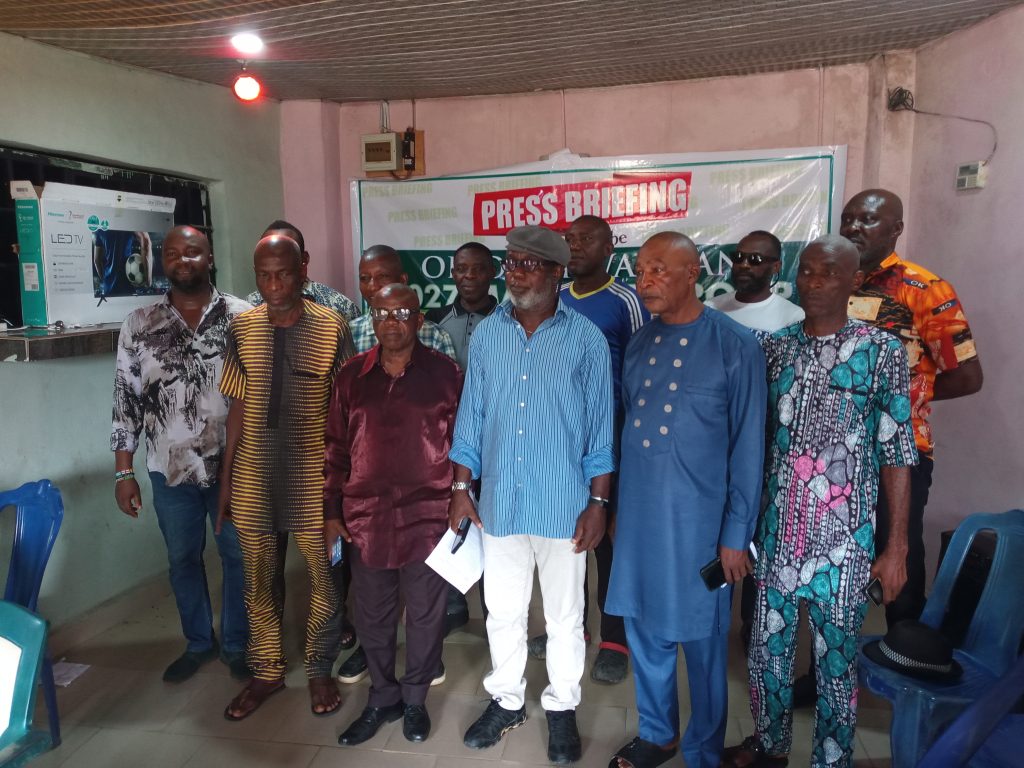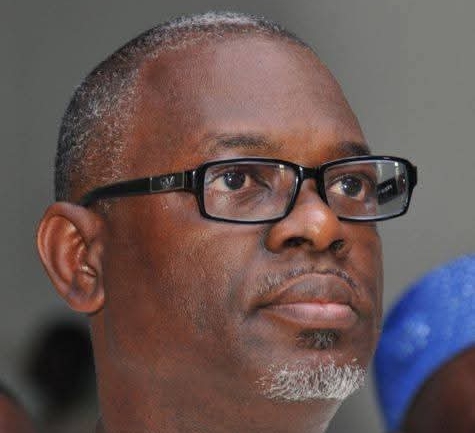Africa
How Nigerian Leaders Abandon the Nation They Failed to Build

The sight of former Nigerian President Muhammadu Buhari visiting former military Head of State General Yakubu Gowon at his London residence may seem, at first glance, a routine interaction between elder statesmen.

However, this image is a powerful symbol of a disturbing trend that has plagued Nigeria for decades: the consistent abandonment of the country by its leaders after leaving office.
In recent years, this trend has become a glaring indictment of the failure of governance in Nigeria.
From Abuja to Aso Rock, Nigerian leaders have made a habit of seeking solace in foreign lands once their tenure comes to an end.
They retreat to the comfort of countries whose systems they had no hand in building, leaving behind a nation grappling with the fallout of their poor leadership.
For many, this pattern represents more than just a lifestyle choice; it is a stark reminder of the decay, neglect, and corruption that characterize the leadership class in Nigeria.
The question is simple: Why do Nigerian leaders, after serving in the highest offices of the land, choose to live abroad rather than in Nigeria?
If they had governed effectively, developed the country, and built the systems that ensure a comfortable and safe life, would they not choose to live in the very nation they once ruled?
Their actions suggest something far more profound: that Nigeria, under their leadership, has failed to reach its potential, to the point that even the leaders themselves find it uninhabitable after leaving office.
Healthcare: A System Neglected, Now Abandoned
One of the most telling aspects of this mass exodus of Nigerian leaders is their reliance on foreign healthcare.
While in office, it is no secret that many high-ranking officials routinely travel abroad for medical treatment.
President Buhari himself spent significant time in the United Kingdom for medical reasons during his presidency, at one point sparking national debates on the state of Nigeria’s healthcare system.
The reality is that Nigeria’s healthcare system has been woefully underfunded and mismanaged for years.
Rather than investing in hospitals, training healthcare workers, or upgrading medical infrastructure, successive governments have allowed the system to collapse under the weight of corruption and neglect.
Despite repeated promises of reform, Nigerian leaders have failed to make meaningful progress.
The exodus of these leaders to foreign hospitals is a direct indictment of their failure.
How can a leader justify ruling over a country for years, only to seek medical care abroad once they are no longer in power?
The truth is simple: they know the system they presided over is not equipped to handle their needs, let alone the needs of the ordinary Nigerian citizen.
In effect, they have created two healthcare systems—one for the elites, who can afford to travel abroad, and another for the masses, who must make do with underfunded, overstretched hospitals.
This raises an uncomfortable truth: if these leaders had genuinely invested in the Nigerian healthcare system, they would not need to flee to foreign lands for treatment.
They would have access to the very facilities they were responsible for building.
Instead, they have chosen to abandon the country they ruled, leaving millions of Nigerians to suffer the consequences of their failures.
Education: A System Failing The Youths, Yet Abandoned by Leaders
Another key reason Nigerian leaders abandon the country post-tenure is the deplorable state of the educational system.
Most Nigerian political elites send their children abroad for their education, a practice that underscores the complete lack of confidence in the Nigerian education system.
Strikes, lack of funding, and infrastructural decay have marked Nigeria’s education sector from primary schools to tertiary institutions.
Nigeria’s ruling class sends their children to schools in Europe, the United States, and other parts of the developed world, which stands as the most damning indictment of the neglect of the education system.
This sends a clear message: those in power consider Nigerian schools unfit for their children, yet expect them to be good enough for millions of ordinary Nigerians.
Consider the ripple effects of this decision.
These leaders, while in office, had the power to enact educational reforms, to ensure that Nigerian universities could compete on the global stage, and to increase funding for research, science, and innovation. Instead, they allowed the system to collapse.
The result is a nation where many young Nigerians, even those with the academic capacity, cannot access quality education within their own country.
This is a country where the intellectual brain drain is so severe that the brightest minds are forced to seek education abroad, often never returning to contribute to the nation’s development.
If Nigerian leaders had invested in the education sector, their children, and indeed themselves would have no need to seek greener pastures abroad.
The irony is bitter: those tasked with building the nation’s future through education have chosen to abandon the very system they were supposed to nurture.
Infrastructure and Security: A Nation Left in Disrepair
Another major factor driving Nigerian leaders abroad is the state of the nation’s infrastructure and security.
Nigeria’s roads are notoriously unsafe, both due to their poor condition and the rampant insecurity that plagues many parts of the country.
Kidnapping, banditry, and terrorism have become endemic, making life in Nigeria perilous, even for the wealthy and powerful.
While in office, these leaders had the opportunity to address these issues.
They controlled the nation’s budget, secured international support, and were responsible for providing security to all Nigerians.
Yet, year after year, they squandered budgets, underfunded security forces, and left them ill-equipped to handle challenges.
At the same time, they either abandoned large infrastructure projects or turned them into opportunities for corruption.
The result is a country where traveling between cities can feel like a dangerous gamble.
The infrastructure needed for a modern economy—reliable roads, electricity, and communication networks—remains either unfinished or in a constant state of disrepair.
Is it any wonder, then, that these leaders choose to spend their post-tenure years in countries where basic infrastructure is not a concern?
The Culture of Escape: Leaders and Their Families Seeking Refuge Abroad
The broader cultural implications of this pattern are even more disturbing.
What message does it send to Nigerians when their leaders consistently choose to live abroad after their tenure?
It suggests that these leaders do not believe in the long-term viability of the nation they once governed.
Their decision to live in foreign countries, often with their families, indicates a lack of faith in Nigeria’s future.
Moreover, this culture of escape creates a dangerous precedent.
It normalizes the idea that Nigeria is a country to be used, not invested in.
It reinforces the notion that wealth and power are tools for personal enrichment, rather than for national development.
By choosing to live abroad, these leaders are sending a clear message: Nigeria is not good enough for them or their families.
A Call for Accountability and Reform
As Nigeria continues to grapple with economic challenges, political instability, and social unrest, the post-tenure exodus of its leaders raises critical questions about accountability and governance.
Nigerian leaders cannot continue to abandon their country while expecting the citizens they once ruled to suffer the consequences of their failures.
Nigeria must fundamentally shift how it views leadership.
Public office should no longer be seen as an opportunity for personal gain but as a responsibility to improve the lives of all Nigerians.
The nation must hold leaders accountable for their actions, both during and after their tenure.
They must live with the systems they helped create, and their decisions must reflect a long-term commitment to national development.
If Nigerian leaders truly want to leave a lasting legacy, they must invest in the systems that will allow future generations to thrive.
They must stop the culture of neglect that has turned Nigeria into a nation from which they seek refuge.
Only then will we see a Nigeria where leaders, past and present, are proud to live within its borders because they have worked to make it a country worth living in.
Until then, the image of Nigerian leaders retreating to foreign countries after their tenure will remain a symbol of their ultimate failure: the inability to build a nation that even they want to call home.
For Diaspora Digital Media Updates click on Whatsapp, or Telegram. For eyewitness accounts/ reports/ articles, write to: citizenreports@diasporadigitalmedia.com. Follow us on X (Fomerly Twitter) or Facebook











